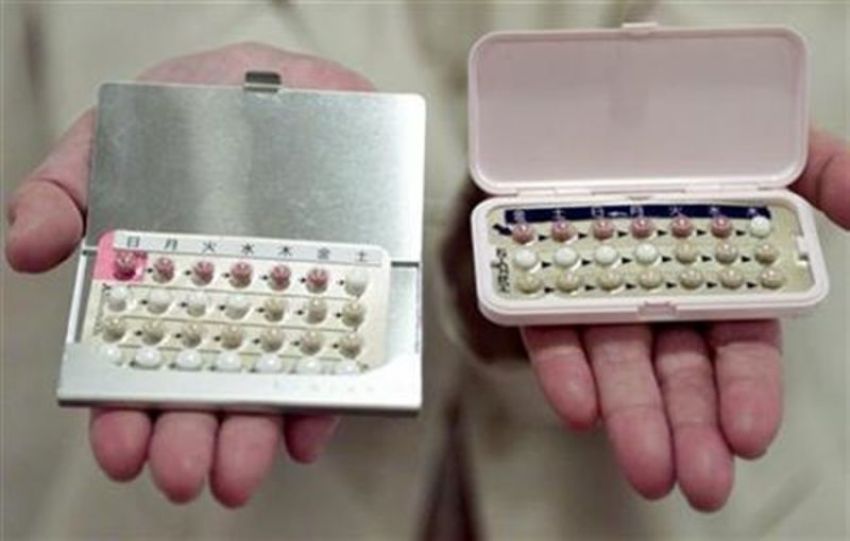FDA postpones meeting for first over-the-counter birth control pill to 'review new information'

The Food and Drug Administration has indefinitely postponed a meeting scheduled for this Friday to review an application for the first over-the-counter birth control pill as the debate over contraception heats up after the U.S. Supreme Court reversed Roe v. Wade this summer.
In a Tuesday statement to The Christian Post, the FDA revealed that it postponed its joint meeting of the Nonprescription Drugs Advisory Committee and the Obstetrics, Reproductive, and Urologic Drugs Advisory Committee to discuss the drug application for Opill.
"The meeting has been postponed to allow the agency additional time to review new information," an FDA spokesperson wrote. "The postponement does not indicate or affect any decision regarding the application."
The FDA confirmed in September that it scheduled a meeting with external experts on Nov. 18 to review pharmaceutical company Perrigo's application for an over-the-counter birth control pill,
Opill is a non-estrogen contraceptive that has required a prescription since it was first approved in 1973. Depending on the FDA's decision, Opill could be the first birth control drug in the United States approved for daily use that can be purchased without a prescription.
The FDA spokesperson indicated that the timing of the agency's decision regarding an application or supplement is usually driven by the goal dates outlined in its Prescription Drug User Fee Act (PDUFA VII) commitment letter. However, the spokesperson clarified that the timing of advisory meetings "does not govern the FDA's review target dates."
"The FDA generally cannot comment on any pending submissions submitted by an applicant to the agency consistent with our obligations under applicable laws," the statement continued.
"The FDA will announce advisory committee meeting updates in the Federal Register and remains committed to a timely review of this application."
According to the National Alliance of State Pharmacy Associations, 20 U.S. states and the District of Columbia allow pharmacists to prescribe hormonal contraceptives. As The Conversation noted earlier this month, pharmacists consult with patients and review their medical history before dispensing hormonal contraception.
If a pharmacist determines that the patient is not eligible to use hormonal birth control, then they will refer them to a physician.
Proponents believe that allowing people to purchase birth control over the counter will remove barriers, such as financial issues or a pharmacist's religious beliefs, that may prevent people from accessing contraception.
While some pro-lifers are divided on the overall effectiveness of contraceptives in reducing abortion rates, the proposed policy to allow over-the-counter purchases of hormonal birth control has prompted questions regarding the potential outcomes of such a program.
Some pro-life advocates have argued that birth control access is necessary in light of the nation's high court reversingRoe this summer, a ruling which returned authority over abortion laws to the state level.
State Rep. Becky Currie, a Republican who once worked as a nurse and authored Mississippi's 15-week abortion ban that led to Roe's reversal, believes lawmakers should make birth control accessible and more affordable to women.
"I absolutely understand. I would love some women to wait until marriage," Currie told CP in August. "I'm a Christian. I want that to happen. But I do, as a nurse, live in the real world. And I understand that we're going to have issues if we don't provide it."
In a statement to CP, Secular Pro-Life said it "supports increased access to non-violent reproductive healthcare, including contraceptives."
"While we acknowledge that contraception is not a silver bullet to end abortion, it is an important tool in our toolkit," the group's president Kelsey Hazzard said in the statement. "Research shows that unplanned pregnancy and STD rates drop after pro-life laws are implemented, as people take greater precautions. The pro-life movement should encourage that positive trend."
Melanie Israel, a policy analyst in the Richard and Helen DeVos Center for Life, Religion, and Family at conservative think tank The Heritage Foundation, believes that over-the-counter birth control is not a "silver-bullet policy solution" to decreasing abortions.
"Various forms of birth control are already cheap, heavily subsidized, and accessible," Israel wrote in a statement to CP.
"A significant body of peer-reviewed research underscores that pro-life laws that directly address the legal status of abortion and abortion funding — not contraception access —reduce the abortion rate, and policymakers at all levels of government should continue prioritizing these life-saving laws that protect innocent unborn children and women."
Michael New, assistant professor of practice at the Catholic University of America, believes the FDA's pending decision is a "bad move" from a policy perspective.
"Contraception has a failure rate, and programs to promote or facilitate contraception use are either ineffective at best or counterproductive at worst," he wrote in a statement to CP.
New cited a 2018 study from Planned Parenthood's former research arm, the Guttmacher Institute, which found that about half of the women seeking an abortion were using contraceptives the month before they became pregnant, most commonly condoms (27%) and contraception pill (13%).
The pro-life researcher also pointed to a 2002 Guttmacher Institute study and a 2012 Centers for Disease Control and Prevention study, which found that contraceptives are "already widely available."
In the first study, which analyzed over 10,000 women who received abortion services from 2000 to 2001, many who did not use contraception (32%) did not cite a lack of access as the reason they became pregnant but thought their chances of becoming pregnant were low or had other concerns about contraception. The study noted that as many as 51,000 abortions were "averted by the use of emergency contraceptive pills in 2000."
"A 2012 CDC study of pregnant teenagers had similar findings — a relatively small percentage of teens had trouble accessing contraceptives," New wrote. "Overall, since contraceptives are widely available — it is not clear that making contraceptives available over the counter would significantly increase contraceptive use."
New cited a 2018 study by a pair of Notre Dame economists, which found that teen fertility rates were higher in schools that participated in condom distribution. He highlighted a 2011 University of Michigan study that concluded that an unexpected increase in the cost of contraceptives did not lead to an increase in unexpected pregnancy rates on college campuses. A "three-to-ten-fold increase in the price of the Pill" reduced the use of oral contraception by up to 1.8 percentage points, on average, or 2% to 4%, among college women.
Another study New cited was conducted in 2007 and analyzed 23 studies published between 1998 and 2006. It found that emergency contraception programs did not increase unintended pregnancy or abortion rates.
Currie also believes lawmakers should promote stronger families by enacting policies that make adoption more affordable, hold men accountable as fathers and provide tax breaks to pregnancy resource centers.
In 2019, New analyzed the Guttmacher Institute's updated U.S. abortion data for 2017, finding the country's abortion rate fell by approximately 20% between 2011 and 2017.
The Guttmacher Institute concluded that greater use of contraceptives was responsible for the decline in the abortion rate. However, New noted that the research institute compared 32 states that enacted pro-life laws to 18 states that did not enact pro-life legislation.
The professor finds it problematic that the Guttmacher Institute only examined a change in the U.S. abortion within a six-year period.
"A far better explanation for the long-term decline in this country's abortion rate is that a higher percentage of unintended pregnancies are being carried to term," he argued. "Guttmacher's data shows that in 1981, almost 54% of unintended pregnancies resulted in an abortion. That number fell to 42% in 2011."
Due to the higher percentage of pregnancies being carried to term, New says data indicates that pro-life laws effectively reduce the abortion rate.
Samantha Kamman is a reporter for The Christian Post. She can be reached at: samantha.kamman@christianpost.com.


























